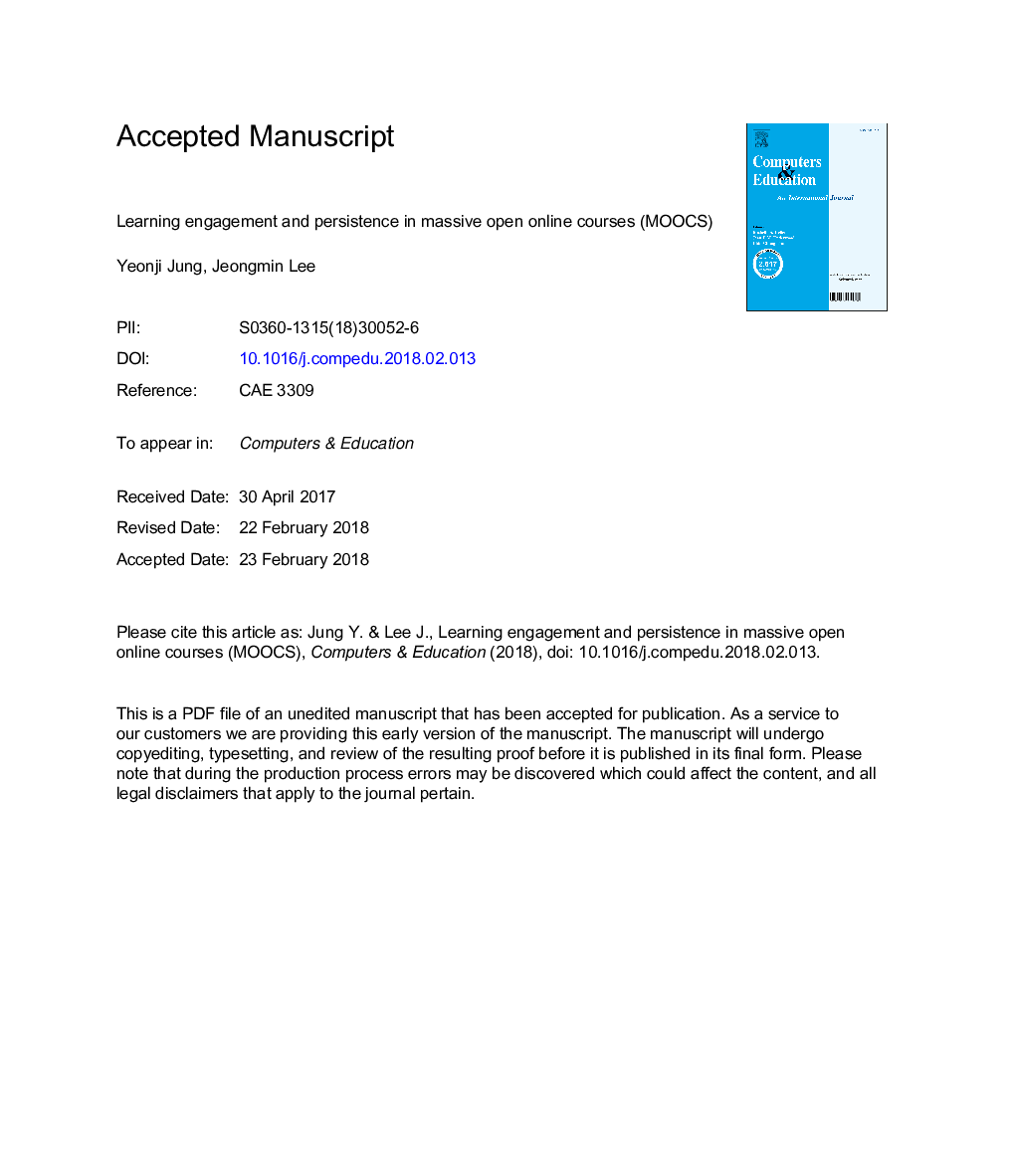| Article ID | Journal | Published Year | Pages | File Type |
|---|---|---|---|---|
| 6834683 | Computers & Education | 2018 | 32 Pages |
Abstract
The purpose of this study was to investigate how to facilitate learners' engagement and persistence in massive open online courses (MOOCs). Specifically, this study used structural equation modeling to examine the structural relationships among academic self-efficacy, teaching presence, perceived usefulness, and perceived ease of use, learning engagement, and learning persistence in MOOCs. For the data analysis, we selected as the research subjects 306 learners who were taking MOOCs in South Korea. The results indicated that academic self-efficacy, teaching presence, and perceived usefulness had significant direct effects on learning engagement. Furthermore, teaching presence and perceived ease of use had direct effects on learning persistence. Finally, learning engagement had indirect effects on the relationships between academic self-efficacy, teaching presence, perceived usefulness, and learning persistence. These findings suggest implications for designing and developing effective instructional and learning strategies in MOOCs in terms of learners' perceptions of themselves, instructors, and learning support systems.
Keywords
Related Topics
Social Sciences and Humanities
Social Sciences
Education
Authors
Yeonji Jung, Jeongmin Lee,
